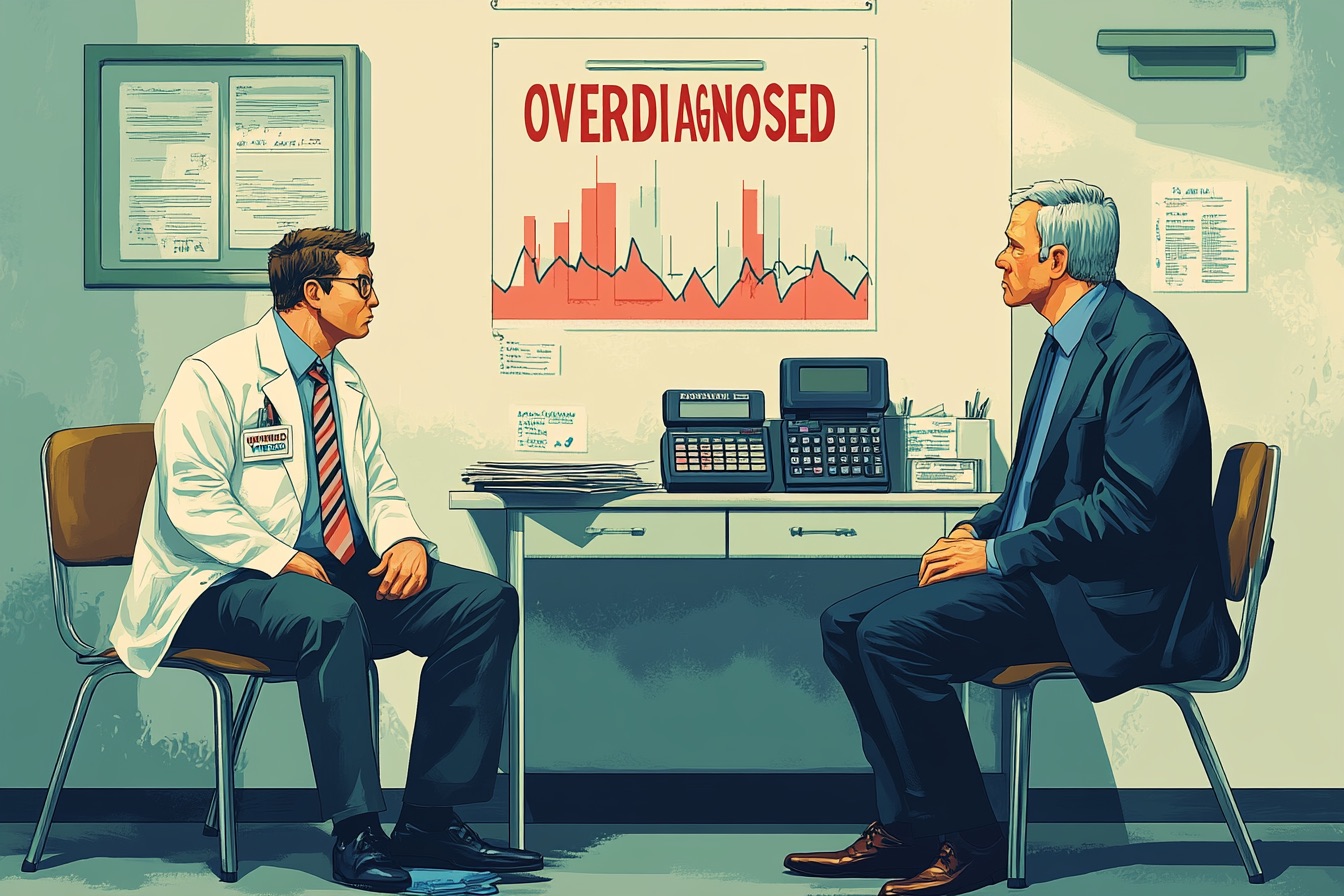Ah, the classic political move: when faced with rising costs in the welfare system, suggest the problem isn't the system itself, but rather that people are being "overdiagnosed" with conditions. It's much easier than addressing those pesky underlying social and economic problems, isn't it?
This week, Health Secretary Wes Streeting suggested that "overdiagnosis" of mental health conditions was a factor in the government's welfare changes. This comes as the government plans substantial cuts to Personal Independence Payment (PIP), citing the "unsustainable trajectory" of disability benefits, which rose by nearly £13bn to £48bn between 2019-20 and 2023-24.
The Convenient Fiction of Overdiagnosis
According to The Guardian's excellent analysis, there's just one tiny problem with this narrative: the evidence doesn't support it.
In fact, research by Professor Susan McPherson at the University of Essex found there were 12 times as many people with "undiagnosed distress" (symptoms severe enough to meet clinical diagnostic criteria) as there were people with diagnoses in the absence of clinically significant symptoms. The latter group—the supposedly "overdiagnosed"—was so small they were almost excluded from the analysis for statistical reasons.
In the game of "Who's Really Playing the System?", it seems the system is winning 12-1.
The Benefit Hero "Reality Check" Crisis Event
In our next game update, we'll be introducing a new event called "Reality Check" where players suddenly discover that all their carefully documented symptoms are actually just figments of their imagination, cunningly planted there by a government budget spreadsheet. Your defense? Good luck with that.
What the Data Actually Shows
Let's look at some inconvenient facts:
- Mental health has objectively worsened since the pandemic, according to the Institute for Fiscal Studies
- People born in 1970, 1958, and 1946 have all reached or surpassed the worst mental health levels in 40 years
- NHS records show the number of people in contact with secondary mental health services rose by 600,000 between 2019 and 2024—a 45% increase
- In June 2024, very urgent referrals to crisis teams for adults were 45% higher than just one year earlier
- Rates of common mental disorders more than doubled in 16- to 24-year-olds between 2000 and 2019 and have increased even more steeply since then
As Professor Daisy Fancourt at UCL puts it: "In the past we'd see a mixture of green, amber and red [severity cases]. Now it's basically all red cases and a few amber. There isn't actually the space to see the greens."
This doesn't sound like overdiagnosis. It sounds like a mental health crisis.
The "Either Fit or Ill" False Dichotomy
One of the most revealing quotes in the article comes from Dr. Annie Irvine at the University of York:
"The way the system has been designed, you're either fit for work or ill. The only part of people's life situation that the welfare system is interested in hearing about and legitimising is the health part. No matter what other issues you're also dealing with—housing, lone parenthood, domestic violence, relationship breakdown, caring—the only part of that the system has a space for at the moment is the mental distress part."
In other words, the welfare system has created the very problem it's now complaining about. By forcing people to medicalize their complex life circumstances to receive support, it has inadvertently encouraged the framing of social and economic problems as medical ones.
Coming Soon to Benefit Hero: The "Diagnosis Downgrade" Defense Mechanism
In our next update, we're introducing a new defense mechanism: "Diagnosis Downgrade." When faced with a crisis event where your benefits are questioned, you can trade your diagnosis for a vague acknowledgment that life is sometimes difficult. Your benefit amount will be reduced by 80%, but hey—at least you won't be contributing to the "overdiagnosis epidemic"!
The Uncomfortable Truth
The article reveals a simple truth: mental ill health is rising because life has become harder for many people. Poverty, housing insecurity, employment uncertainty, the pandemic, climate anxiety—these aren't medical problems, they're social and economic ones.
As Professor Ewen Speed, a medical sociologist at the University of Essex, puts it perfectly: "Identifying it as an individual crisis of care speaks to a wider political motive. It backgrounds a social crisis of inequality. To talk about this as overdiagnosis is a mischaracterisation of the scope of the problem."
Or to put it in Benefit Hero terms: It's easier to blame the claimants than fix the game.
The Social Prescription: A Sticking Plaster on a Broken Leg?
The article mentions the rise of "social prescribing"—connecting patients to community resources and activities rather than just medications or therapy. It's tripled in the last three years.
While there's nothing wrong with getting people involved in hobbies, sport, or volunteering, there's something darkly comic about the implication: "You're not mentally ill, you just need a hobby!" It's the healthcare equivalent of "Have you tried not being poor?"
One wonders if the next social prescription will be "Have you tried playing Benefit Hero to understand how the system works?"
The Bottom Line
Mental health diagnoses aren't rising because doctors have suddenly become more generous with their diagnostic criteria. They're rising because people are genuinely struggling in an increasingly precarious economic landscape.
When politicians talk about "overdiagnosis," what they're really saying is: "It's cheaper to question your diagnosis than to fix the conditions causing your distress."
In Benefit Hero, as in life, it's always easier to change the rules than improve the game.
